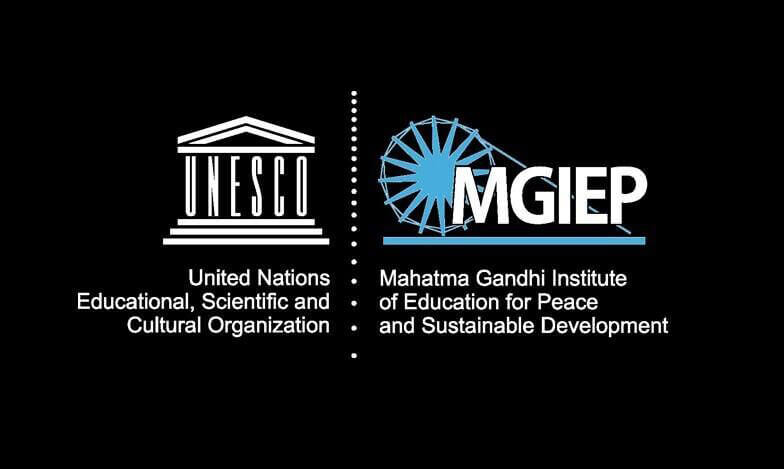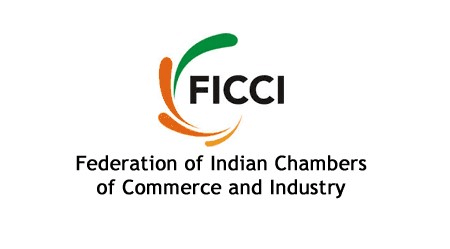Industry
I have over three years of work experience as a development research professional. In this time period, I have managed projects and stakeholders, conducted both quantitative and qualitative research using analytical software like STATA, R, and Atlas.ti. I have analysed large datasets like the Demographic & Health Survey (DHS) and several rounds of National Sample Survey (NSS) of India using statistical software. I enjoy working on interdisciplinary projects, I have worked on education, health, child protection projects with a special focus on gender. However, my area of interest is rather broad which includes behavioural development, development economics, economic development and income distribution, trade, international affairs, climate change, and political economy.

As a Research Associate at Young Lives India, I worked alongside senior researchers in effectively pitching and delivering projects – this includes project and process management, communication, and knowledge management. I undertook both quantitative and qualitative research and supported in designing research, building dashboards, conducting literature reviews, drafting, editing, and proof-reading documents (viz. proposal, research reports, concept notes, etc.); as well as prepared for and coordinated meetings, events, capacity building workshops, undertook technical interviews and assignment assessment for recruitment.
Young Lives Disability Study for Foreign, Commonwealth and Development Office (FCDO)
As part of the disability study undertaken to understand the life trajectories (educational and work experiences) of the persons with disabilities as well as in comparison to persons without disabilities, a quantitative analysis and gender analysis was undertaken using the Young Lives Longitudinal Study data from Round 5 (2016-17) of India.
Young Lives Phone Survey Analysis for FCDO
Due to the onset of COVID-19, instead of undertaking Round 6 data collection, Young Lives teams across the four countries collected information about the cohorts over phones in three calls. I analyzed the Young Lives Longitudinal Study data from Round 4 (2013-14) & Phone Survey (2020-21) of India to understand the difference in life trajectories, both educational and work experiences, of the Older Cohort and the Younger Cohort, as well as the impact of COVID-19 on the educational trajectories of the Younger Cohort.
Evaluation of the M&E framework & Sustainability of three child protection investments for Children’s Investment Fund Foundation (CIFF)
In CIFF’s endeavour to evaluate the working of some of its child protection investments, Young Lives India undertook the evaluation of the M&E framework and sustainability of three of CIFF’s such investments/programmes. These programmes focused on issues like child marriage, child labour, commercial sexual exploitation of children, amongst others. In two out of three investments, the focus was on girl child victims. I assisted end-to-end in this project, from proposal writing to the dissemination stage. The evaluation used mixed-method research, this included desk review, evaluation matrix development, field visit – focus group discussions, and interviews with key stakeholders in Madhya Pradesh, Rajasthan, and Kolkata. The end result included final reports and dissemination material including presentations to share the findings and recommendations for the individual programmes as well as for CIFF on mitigating the identified challenges.
CIFF – Young Lives COVID-19 Well-being Survey
Young Lives India was working in collaboration with Children’s Investment Fund Foundation (CIFF) to determine the well-being and mental health status of adolescents from marginalized communities. For this purpose, I assisted in developing a tool to ascertain vulnerability among adolescents (15-19 years old) due to COVID-19. The tool was to be administered by CIFF’s partner organizations in Rajasthan with adolescents who are part of their respective programmes.
SDG Cohort Study (an offshoot of Young Lives longitudinal study) for UNICEF
As an offshoot to the Young Lives (YL) longitudinal study in India, Young Lives India has begun with another potentially longitudinal study, where children of the YL cohort (both Younger Cohort and Older Cohort) will form the SDG Cohort or the cohort for the Sustainable Development Goals (SDGs) Study. The children up to the age of 3 years (at the time of data collection) were to be the participants or members of the SDG Cohort. The objective was to see how effective the government programmes and policies are towards achieving the SDGs. Additionally, one could also study the trans-generational difference as data for YL longitudinal study provide substantial amount of information about the parents of the SDG Cohort. I had worked on the inception stage of the study that focused on ascertaining the impact of government’s schemes and programmes on the health and nutrition of 0-3 years old babies and their mothers. Major duties included tool development for the survey and preparing preliminary reports.
Teachers’ Working Conditions in the State and Non-State Schools for Global Education Monitoring Report 2021 (UNESCO-GEMR 2021)
UNESCO Global Education Monitoring Report 2021 is focusing on the Non-State Actors in Education. As Dr. Renu Singh was writing a background report for UNESCO GEMR 2021, I assisted her by undertaking preliminary literature review & Young Lives longitudinal study data management (transformed student-level dataset to teacher-level dataset) and descriptive data analysis for India, Ethiopia, and Vietnam. Additionally, I extracted and processed the UNESCO Institute for Statistics (UIS) & Unified District Information System for Education (UDISE) data.
Child Marriage Project for National Commission for Protection of Child Rights (NCPCR)
Young Lives India is NCPCR’s technical partner since 2018, and have undertaken several research projects for them to provide rigorous research evidence for effective policymaking. One of the major issues addressed by NCPCR is of Child Marriage. For this purpose, I had analysed the fourth round of Demographic and Health Survey (DHS) – India, also known as the National Family Health Survey (NFHS-4), and prepared factsheets on ‘Child Marriage and Teenage Pregnancy’ amongst 15-19 years old girls for India and several Indian states (viz. Andhra Pradesh, Bihar, Gujarat, Rajasthan, Telangana, Tripura, and Uttar Pradesh). Additionally, I prepared a pamphlet with all the information about the Indian laws related to child marriage. In October 2019, I assisted in organizing the Rajasthan Child Marriage Consultation in Jaipur, as well as a workshop on child marriage laws with adolescent girls.
In 2020, as the Government of India (GoI) was contemplating increasing the age of marriage for girls from 18 to 21 years, and Dr. Renu Singh was a member of the Jaitly Committee, GoI, I analysed NFHS-4 and prepared a report on Age of Marriage and Long Term Implications for Women in India for 21-30 years old women.
Secondary data analysis on Child Migration in India for UNICEF
To understand the issue of child migration in India, Young Lives India undertook a secondary data analysis using the national level datasets including Census of India, NFHS-4, and National Sample Survey (NSS). I assisted in report writing, and data analysis of NSS 64th round, and Census of India – 1991, 2001, 2011. Additionally, I also prepared dissemination documents including presentation.
Development of Life Skills Measurement (LSM) Tool for UNICEF
While life skills are acknowledged as an integral component of the 21st Century Skills and several programmes are being implemented to build life skills amongst children, there is no one effective tool to measure these life skills. To support UNICEF in this endeavour, Young Lives India took upon the task to build Life Skills Measurement Tool for Elementary school children of the age 11-14 years (Grade 6-8) with focus on five Indian States, i.e. Assam, Jharkhand, Madhya Pradesh, Rajasthan, and Uttar Pradesh. I assisted in situational analysis for the study, tool piloting in Delhi, Uttar Pradesh & Rajasthan. Furthermore, I supported in building capacity of the Master Trainers from Assam and Rajasthan on the usage and administration of the LSM on the UNILearn platform. I also developed the LSM dashboard for easy analysis of data by the trainers and state functionaries.
In 2020, Young Lives India begun developing the LSM Tool for Secondary school children of the age 15-18 years (Grade 9-12). During the pre-piloting stage, I assisted by testing the validity and reliability of the psychometric tool using statistical methods.

In 2016-17, I worked as a Research Consultant at UNESCO MGIEP for the project –Rethinking Schooling for the 21st Century. The project aimed to ascertain the presence of the concept of Globalization, Peace and Sustainable Development (SDG 4.7) in the education policies and laws of the Asian countries. As part of its sub-study, the project intended to analyse the presence of these concepts in the Economics school textbooks, syllabi and curricula. For this sub-study, I revised & finalized the methodological framework for reviewing economics textbooks/documents. I undertook thematic coding to analyse the presence of SDG 4.7 concepts in the school level economics textbooks, curricula, and syllabi for six Asian countries, viz. Bangladesh, Bhutan, Hong Kong, India, Singapore, and Sri Lanka. I also supported in conducting the workshop for the country-level consultants on coding & analysis. Lastly, I wrote the background report based on the analysis.

In 2015, for a period of two-months, I interned at Federation of Indian Chambers of Commerce and Industry (FICCI) in the Environment, Climate Change, Renewable Energy & Water Division: undertook secondary research for UNEP-India Report; assisted in collating information for the Report on the Draft of Waste Management Rules 2015, based on the stakeholders’ meetings held in Kolkata and Mumbai organized by FICCI. And Lastly, I undertook market research for the India Sustainability Conclave 2015.
